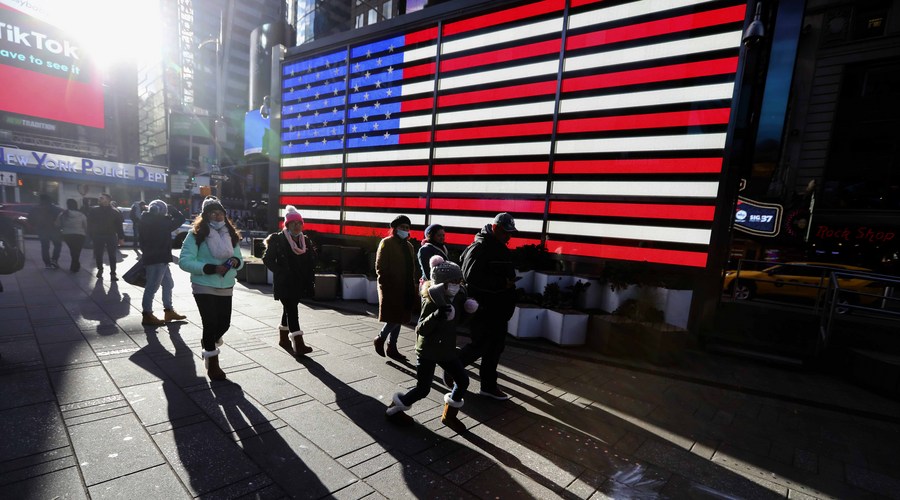Experts criticize US poor response to COVID-19 as potential fall surge underway


LOS ANGELES - Experts blame the US government for the country's failed response to the COVID-19 pandemic, while US health officials expect another fall and winter surge as people head indoors during the colder weather.
Some researchers said the United States is already starting to see early signs of a resurgence. According to an NPR report, virus levels in wastewater are up in Pennsylvania, Connecticut, Vermont and other parts of the Northeast, potentially "an early-warning sign of what's coming."
The United States is currently averaging about 39,000 new cases, 340 new deaths and 3,300 new hospitalizations each day, according to the latest data from the US Centers for Disease Control and Prevention.
Experts warned there could be a "significant undercount" in cases, with most people testing positive on rapid tests that go unreported or foregoing testing altogether.
Infections and hospitalizations have started rising in some parts of New England and some other northern areas, such as the Pacific Northwest, according to David Rubin, director of the PolicyLab at Children's Hospital of Philadelphia, which tracks the pandemic.
"We're seeing the northern rim of the country beginning to show some evidence of increasing transmission," Rubin said. "The winter resurgence is beginning."
US health officials expect another fall and winter COVID-19 surge as immunity from vaccination wanes off and people head indoors as the weather turns colder.
As of Oct 6, about 68 percent of the US population is fully vaccinated with their initial series, according to the Centers for Disease Control and Prevention. But less than half of the fully vaccinated population has received a booster dose.
"The United States, among the richest, most advanced nations in the world, remains wholly unprepared to combat new pathogens," according to a piece in The New York Times.
Both the COVID-19 and monkeypox outbreaks have revealed deep fissures in the nation's framework for containing epidemics, said the piece. "Add to that plummeting public trust, rampant misinformation and deep schisms -- between health officials and those treating patients, and between the federal government and states."
The most intractable hurdle to a coordinated national response arises from the division of responsibility and resources between US federal, state and local governments, along with gaps in communications between the public health officials coordinating the response and the doctors and nurses treating the patients, according to the report.
A muddled response to future outbreaks seems almost inevitable, said the report.

































